Faculty summer reading
Carol Lacy-Salazar (Spanish):
“Vivir para contarla”
by Gabriel García Márquez (Knopf, 2002)
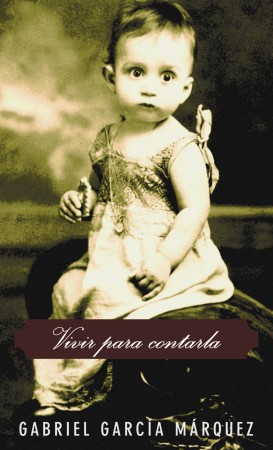 After reading the superb biography by Gerald Martin titled “Gabriel García Márquez: A Life,” I want to go back and re-read Marquez’s autobiography. Márquez has always maintained that his magically real universe is firmly grounded in the reality of his personal life as well as that of the cultures of Colombia and Latin America, and these two narratives about his life make the correlation between the magical and the real very apparent. On the other hand, I hope that the discrepancies between the biography and the autobiography will prove to be revealing of the poetic license Márquez allowed himself in creating his own very distinctive style.
After reading the superb biography by Gerald Martin titled “Gabriel García Márquez: A Life,” I want to go back and re-read Marquez’s autobiography. Márquez has always maintained that his magically real universe is firmly grounded in the reality of his personal life as well as that of the cultures of Colombia and Latin America, and these two narratives about his life make the correlation between the magical and the real very apparent. On the other hand, I hope that the discrepancies between the biography and the autobiography will prove to be revealing of the poetic license Márquez allowed himself in creating his own very distinctive style.
Addison Ault (chemistry):
“Quantum: Einstein, Bohr, and the Great Debate about the Nature of Reality”
by Manjit Kumar (Icon Books Ltd., 2008)
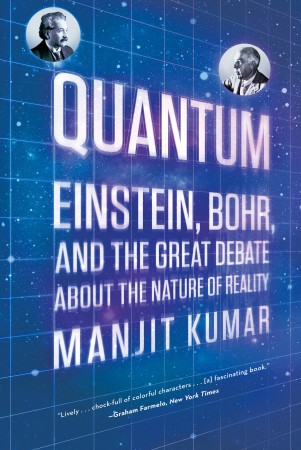 Kumar writes on page 305 “According to the uncertainty principle, a measurement that yields no exact value for the momentum of a microphysical object or system excludes even the possibility of simultaneously measuring its position. The question that Einstein wanted to answer was: Does the inability to measure its exact position directly mean that the electron does not have a definite position? The Copenhagen interpretation [Bohr] answered that in the absence of a measurement to determine its position, the electron has no position.” A fascinating story, with much of it presented in the words of the participants.
Kumar writes on page 305 “According to the uncertainty principle, a measurement that yields no exact value for the momentum of a microphysical object or system excludes even the possibility of simultaneously measuring its position. The question that Einstein wanted to answer was: Does the inability to measure its exact position directly mean that the electron does not have a definite position? The Copenhagen interpretation [Bohr] answered that in the absence of a measurement to determine its position, the electron has no position.” A fascinating story, with much of it presented in the words of the participants.
Joe Dieker (dean of the college):
“Why Choose the Liberal Arts”
by Mark William Roche (University of Notre Dame Press, 2010)
“That Used to Be Us: How America Fell Behind in the World It Created and How We Can Come Back”
by Thomas Friedman and Michael Mandelbaum (Farrar, Straus and Giroux, 2011)
“Last Night in Twisted River”
by John Irving (Random House, 2009)
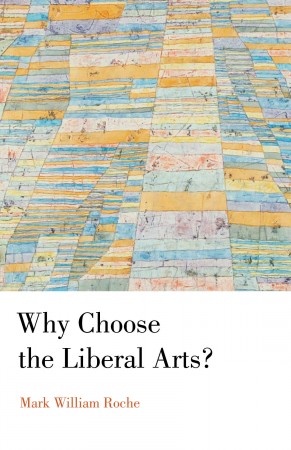 Roche is a professor at Notre Dame who has written a very compelling argument for an education in the liberal arts. I am hoping to gain new insights into how to better make the case for a Cornell liberal education to prospective students and parents through reading this book. “That Used to Be Us” continues the Friedman series of books about the current state of American competitiveness and America’s place in a changing world. I am a big fan of John Irving novels and have not yet read this, his latest.
Roche is a professor at Notre Dame who has written a very compelling argument for an education in the liberal arts. I am hoping to gain new insights into how to better make the case for a Cornell liberal education to prospective students and parents through reading this book. “That Used to Be Us” continues the Friedman series of books about the current state of American competitiveness and America’s place in a changing world. I am a big fan of John Irving novels and have not yet read this, his latest.
Ross Sowell (computer science):
“Nine Algorithms That Changed the Future: The Ingenious Ideas That Drive Today’s Computers”
by John MacCormick (Princeton University Press, 2011)
Recently published, this book seeks to explain some of the most impactful ideas in my discipline in terms that anyone can understand. It has received great reviews, and I am wondering if this might be a book that I could use as the basis for a first-year seminar.
Jonathan Brand (president):
“Human: The Science Behind What Makes Us Unique”
by Michael S. Gazzaniga (Ecco, 2008)
“The Social Animal: The Hidden Sources of Love, Character, and Achievement”
by David Brooks (Random House, 2011)
“The Power of Habit: Why We Do What We Do in Life and Business”
by Charles Duhigg (Random House, 2012)
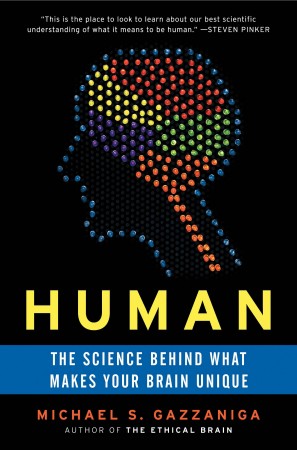 I am deeply interested in how biology and behavior connect, that is, how biological imperatives influence actual choices that people make. So, I have been lining up several neuroscience-related books recommended by friends, in a very intentional order. I started with Gazzaniga’s book, which is a relatively comprehensive introduction to neuroscience (beginning with a chapter on the human brain anatomy). I am then turning to Brooks. Next on my list will be Duhigg, which I believe explores how habits may be biologically guided.
I am deeply interested in how biology and behavior connect, that is, how biological imperatives influence actual choices that people make. So, I have been lining up several neuroscience-related books recommended by friends, in a very intentional order. I started with Gazzaniga’s book, which is a relatively comprehensive introduction to neuroscience (beginning with a chapter on the human brain anatomy). I am then turning to Brooks. Next on my list will be Duhigg, which I believe explores how habits may be biologically guided.
Rob Sutherland (politics):
“Socrates: A Man for Our Times”
by Paul Johnson (Viking Adult, 2011)
Those who use philosophical ideas as weapons in the fight for political power are always stymied by the example of Socrates who lost his life defending philosophy against predatory ambitions that threaten the public square, not only in Athens of long ago but in America in 2012. The deliberate, intentional life led by Socrates is here juxtaposed to a life of cheap expediency, often disguised in an intellectual, even academic, costume, that is so common in highly contested times like ours. Gregory Vlastos’ “Socrates: Ironist and Moral Philosopher” is the foundation of Johnson’s work, but only those who read classical Greek will prefer Vlastos’ work to Johnson’s. My Greek is rusty; my time is short. Johnson offers me, and others like me, a secure anchorage in the rhetorical and intellectual storms that will bring confusion throughout the fall preceding election day in November.
James Martin (music):
“The Black Book”
by Orhan Pamuk (Vintage, 2006)
Pamuk, Nobel Prize winner in literature in 2006, presents a complex picture of his native Turkey and Islam, the conflict between Western modern secularism and Eastern traditional values, and deep insights into the creative arts. Having read two of his novels already, I anticipate an exciting, thoughtful journey with an author who has been both acclaimed in Turkey and threatened with a three-year sentence for “insulting Turkishness” for his declarations that Turkey had killed 1 million Armenians and 30,000 Kurds.
Mary Olson (sociology):
“Tending the Wild: Native American Knowledge and the Management of California’s Natural Resources”
by Kat Anderson (University of California Press, 2006)
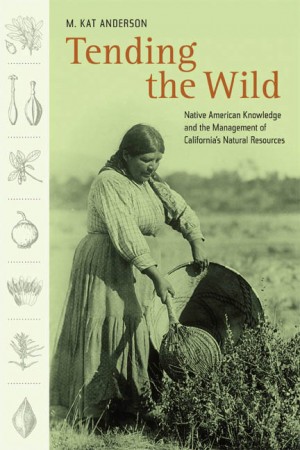 This is a book focused on Native American stewardship of wild places in California. I will be using parts of the text during the spring in my new course, Sociology of the Environment.
This is a book focused on Native American stewardship of wild places in California. I will be using parts of the text during the spring in my new course, Sociology of the Environment.



